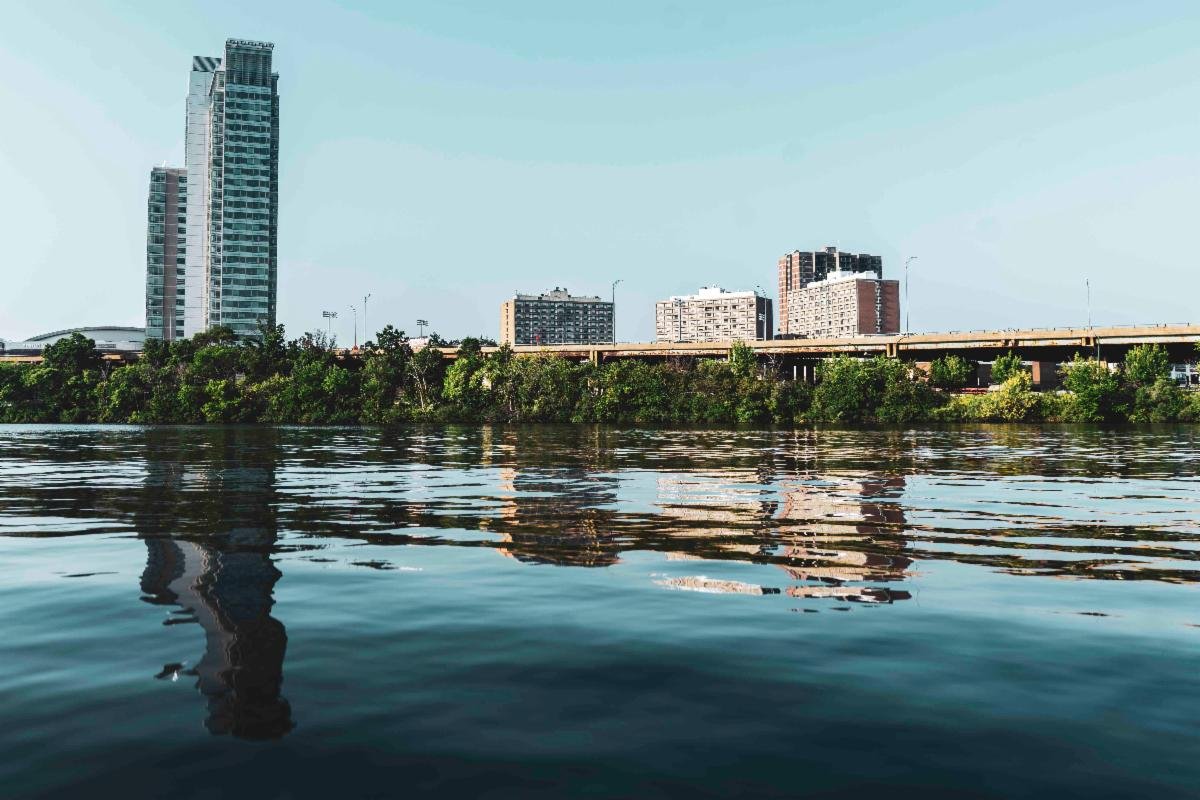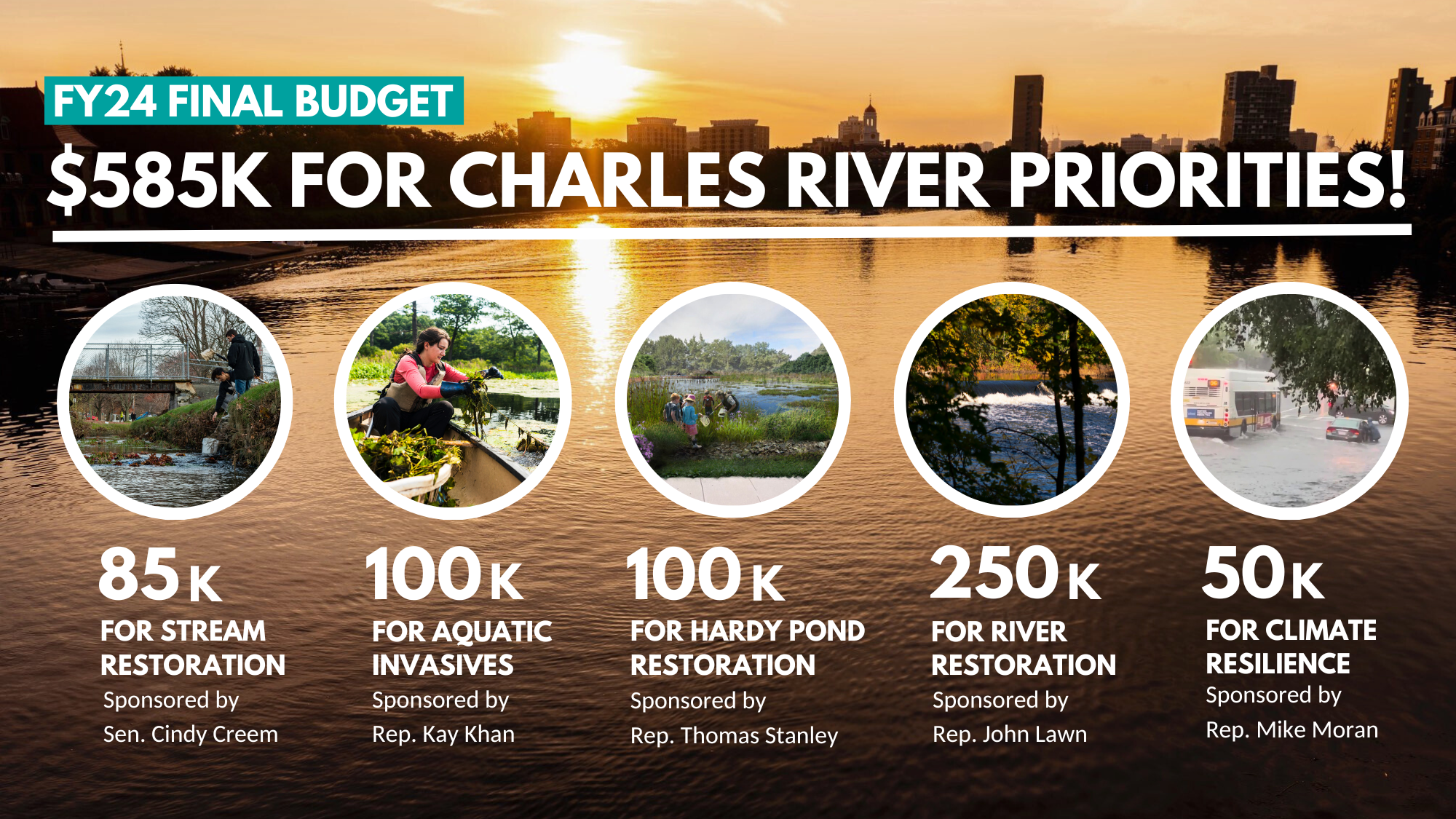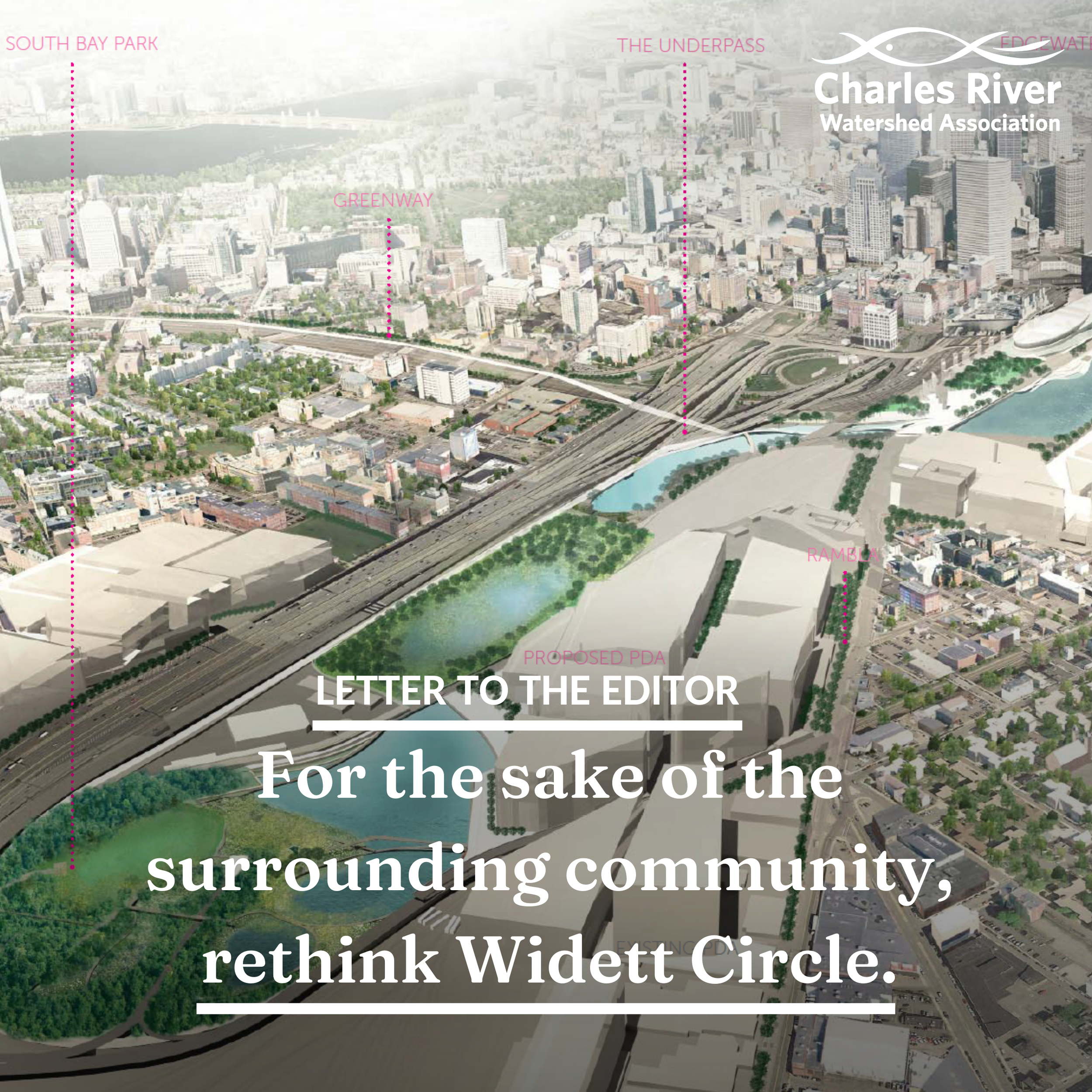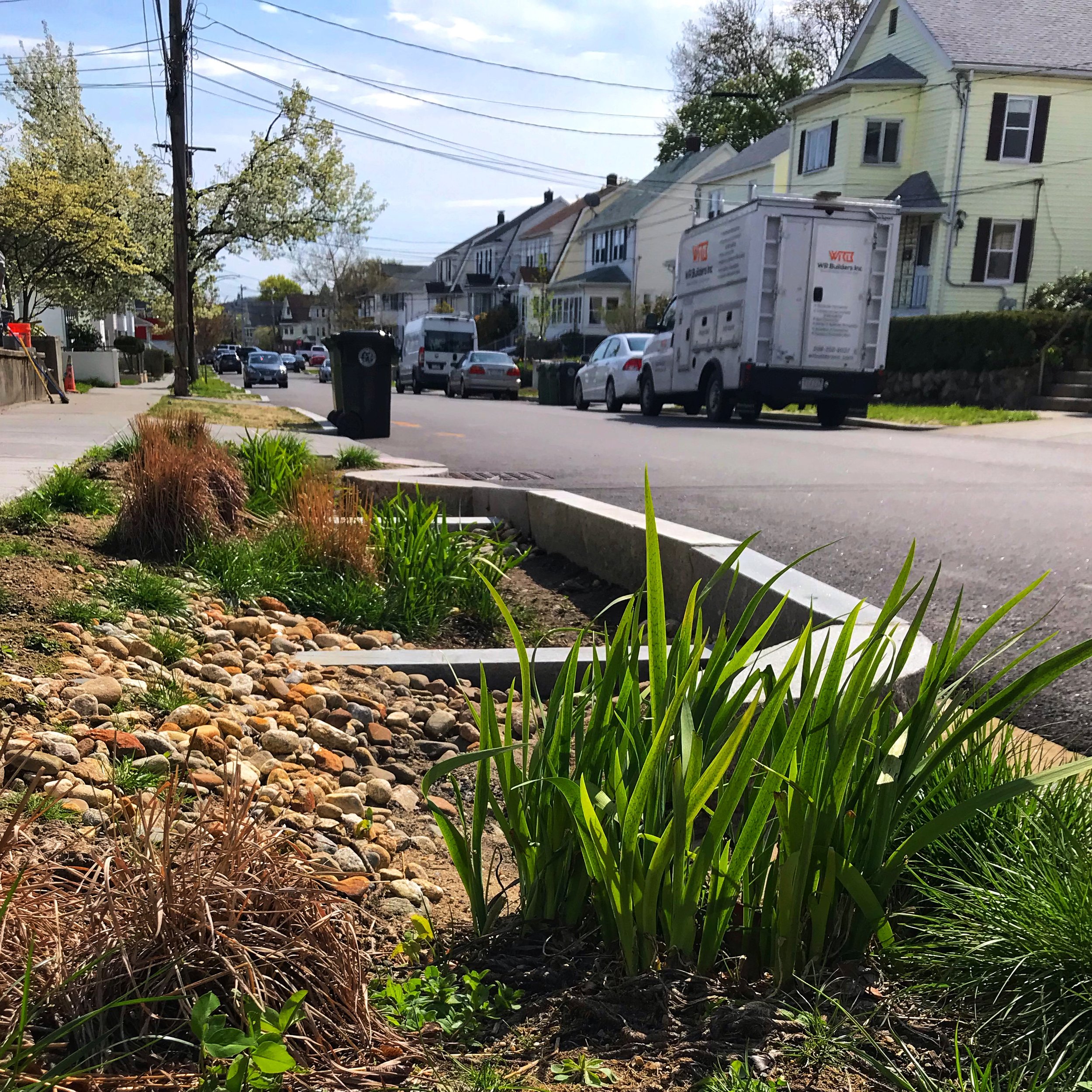
RESILIENT BOSTON
Preparing for Climate Change in Boston.
Coastal cities like Boston are especially vulnerable to climate impacts.
Boston is already experiencing increased precipitation flooding, extreme weather, drought, and heat–– and climate impacts are rapidly accelerating in the greater Boston area.
And, these impacts are not felt equally. Historic environmental injustices like disproportionate exposure to pollution, disinvestments in housing and transit, economic inequity, and racist redlining policies, leave some communities in the city more vulnerable and in greater need of adaptation and mitigation investments.
What we are doing about it:
We are rising to this monumental challenge by advocating for nature-based solutions to build climate resilience in an equitable, sustainable manner in Boston to protect our most vulnerable communities from the impacts of flooding, drought, extreme heat, and extreme weather.
I-90 Multimodal Project
Since 2014, we have advocated for the Massachusetts Department of Transportation (MassDOT) to prioritize climate resilience and river health when re-designing the Allston Viaduct, which currently carries the Massachusetts Turnpike (I-90) through the Allston-Brighton area.
Over the past decade, MassDOT has proposed numerous solutions––including designs in 2019 that required the construction of a “temporary” roadway over the Charles River which we strongly opposed and has since been reconsidered. Recently, MassDOT has announced preferred designs for a Modified At-Grade redesign, despite CRWA’s strong recommendations to consider climate impacts, public access, safe, equitable transit, and river health. In 2022, MassDOT and City of Boston applied for $1.19 billion in federal funding, which was rejected, and in 2023 MassDOT approved an $86 million contract to temporarily fix the crumbling elevated section of the Turnpike. We continue to closely follow this project and advocate with the surrounding community for a transit future that will protect river health, manage stormwater, and provide equitable access to the riverfront.
Addressing Stormwater Flooding
Thanks to climate change, Boston will experience more severe and heavy rain events, resulting in increased flooding across the city. To address this growing concern, we are collaborating with the City of Boston Office of Green Infrastructure to develop a comprehensive map and database of flooding incidences as reported by residents and visitors. The database will integrate results from a citizen survey and data from past reports to the City’s 311 system, police, and fire services. This data will inform future policy decisions and help identify priority locations for green infrastructure solutions to address flooding.
In addition to building the database, the team will develop concept designs for a few key locations, focusing on Environmental Justice (EJ) neighborhoods, that use green stormwater infrastructure to reduce or eliminate flooding problems. Local community members will be invited into the design process to ensure success as the City works to make neighborhoods more resilient to climate change.
We hosted a public meeting on January 15 to discuss the project with community members, gather feedback, and outline our next steps.
Harvard Enterprise Research Campus
According to the Boston Globe, Harvard University owns roughly 1/3 of Allston, including a 14.2-acre parcel along the Charles River which is being redeveloped into the Harvard Enterprise Research campus. The development will include 900,000 square feet of mixed-use construction consisting of residential, office/lab, hotel, conference center, restaurant, and retail use, along with over two acres of public open space.
Charles River Watershed Association has been advocating for strong on-site stormwater management, improvements to the North Allston Storm Drainage Extension Project (NASDEP), expanded open space and tree canopy, and climate resilience initiatives to better serve the surrounding flood-prone, environmental justice neighborhood of Allston-Brighton.
Image Credit: DAVID L. RYAN/GLOBE STAFF
Resilient Allston
Allston-Brighton, one of the most urban neighborhoods in our watershed, is undergoing significant development projects that present opportunities to address long-standing environmental issues. We are working to improve community life by reducing flood risks, increasing green spaces, and enhancing river access. Our approach focuses on community-driven, nature-based solutions to boost climate resilience through local advocacy and engagement, aiming to protect the neighborhoods from flooding, extreme heat, and severe weather.
Restoring Widett Circle
We’re advocating for the sustainable redevelopment of Widett Circle, one of the lowest-lying parts of the city, to provide flood resilience and new green spaces in an Environmental Justice area. Historically composed of South Bay tidelands, Widett Circle and the surrounding neighborhoods of the South End, Dorchester, and Roxbury are extremely vulnerable to flooding.
Charles River Watershed Association recommends turning all or even part of Widett Circle into a restored wetland––our 2017 analysis found that a 300-acre wetland in the Fort Point Channel area could also store runoff from a 10-inch storm from more than 1,000 acres of the surrounding developed area, protecting businesses and homes, including those of many low-income residents in the South End, Dorchester, and Roxbury.













